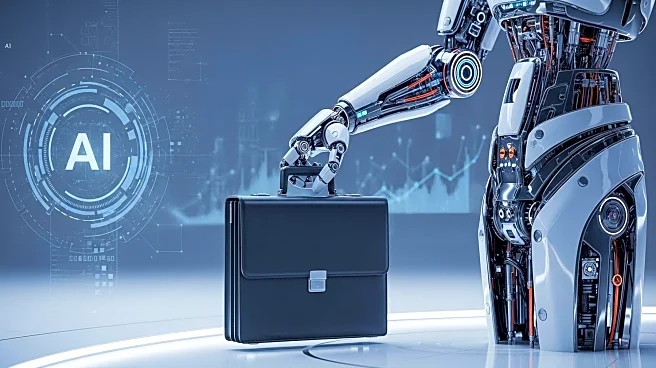What is the story about?
What's Happening?
Anthropic's CEO Dario Amodei and head of policy Jack Clark have issued warnings about the potential for artificial intelligence (AI) to replace a significant number of human jobs. Speaking at the Axios AI+ DC Summit, Amodei emphasized the rapid pace of AI development and the likelihood of job disruption, particularly in entry-level white-collar positions. He predicted that AI could eliminate up to half of these jobs within five years, potentially raising the unemployment rate to between 10% and 20%. Clark highlighted the need for a policy response to manage the expected scale of disruption. The cofounders' warnings are part of a broader conversation among tech leaders about the societal impacts of AI.
Why It's Important?
The warnings from Anthropic's leaders underscore the potential for significant economic and social upheaval as AI technologies advance. If AI replaces a large number of jobs, it could lead to increased unemployment and economic inequality, particularly affecting industries such as law, finance, and consulting. This scenario could necessitate substantial policy interventions to support displaced workers and manage the transition. The discussion also raises questions about the ethical responsibilities of AI developers and the need for regulatory frameworks to ensure that AI benefits society as a whole.
What's Next?
As AI continues to evolve, stakeholders including policymakers, businesses, and civil society groups will need to engage in discussions about how to mitigate the negative impacts of job displacement. This may involve developing new educational and training programs to prepare the workforce for AI-driven changes, as well as exploring policy measures such as universal basic income or job guarantees. The tech industry may also face increased scrutiny and calls for transparency in AI development and deployment.
Beyond the Headlines
The potential for AI to replace human jobs also raises ethical considerations about the role of technology in society. There is a need to balance innovation with the protection of human livelihoods and to ensure that AI advancements do not exacerbate existing social inequalities. Long-term, this could lead to shifts in how work is valued and the development of new economic models that prioritize human well-being over productivity.















